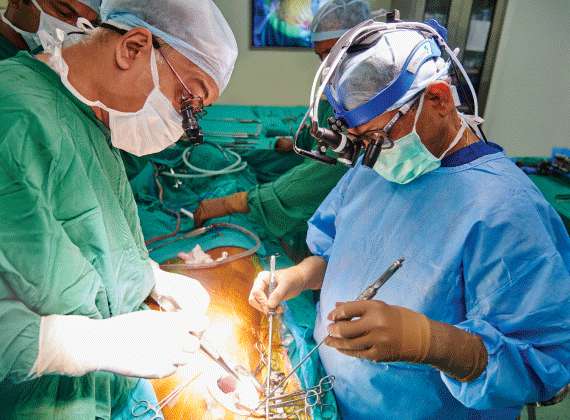Bariatric surgery may help people reach healthy weights when diet, exercise and medications have failed. The procedure alters how food is digested to alter hormones and metabolism resulting in weight loss.
Before surgery, your physician will ensure you’re prepared. This may involve passing various tests and following specific dietary recommendations.
Weight Loss
Bariatric surgery provides a long-term solution to severe obesity. While it’s an arduous journey, bariatric surgery provides significant results and requires significant lifestyle modifications – so your doctor will carefully screen you to ensure you can make these necessary lifestyle adjustments successfully.
Many different weight loss surgeries exist. Some reduce stomach size while others alter its connection to intestines; both approaches promise weight loss along with less hunger, greater fullness and improved blood sugar and cholesterol control. Patients must follow a specific diet after their surgery in order to maximize its effects – this means avoiding certain sugar- or fat-laden foods as well as drinking plenty of water and taking multivitamins/supplements daily.
Diabetes Control
If you have type 2 diabetes, bariatric surgery could be the answer to managing it more effectively. By changing stomach size and stimulating certain hormones, bariatric surgery helps people feel full sooner while restricting how much food their bodies can absorb. Studies show that both gastric bypass and sleeve gastrectomy procedures can put diabetes into remission for around 80 percent of patients.
Prior to surgery, diabetic patients are provided with tailored medication regimens to ensure optimal blood glucose control. Post-surgery, they will begin basal insulin treatment which must be closely monitored as insulin sensitivity and meal sizes change drastically – creating an enormous lifestyle adjustment, impacting how you socialize with family and friends around meals as well as how you manage health care.
High Blood Pressure Control
Obesity can lead to elevated blood pressure due to its additional burden on the cardiovascular system and blood vessels, and can even narrow arteries, potentially damaging organs and leading to serious health complications.
Studies have demonstrated that patients undergoing bariatric surgery experience substantial decreases in their blood pressure, sometimes to such an extent that they can stop taking antihypertensive medication altogether.
Reduced vascular stiffness associated with obesity has been found to lead to reduced blood pressure. A reduction in sodium consumption, known to raise it, also contributed to this. One popular bariatric procedure used to lower blood pressure is the Sleeve Gastrectomy procedure – making a tube-shaped stomach and cutting off some portion of the small intestine from its beginning.
High Cholesterol Control
Obesity can result in elevated cholesterol and triglyceride levels that damage the heart, making this surgery beneficial. Bariatric surgery helps restore these levels while increasing HDL (good) cholesterol.
Bariatric surgeries reduce your stomach size and alter how your body digests food, with gastric bypass changing absorption while sleeve gastrectomy removing up to 80 percent of it, restricting how much food can be eaten and altering digestive hormones that reduce hunger.
Many bariatric surgeries cause malabsorption and malnutrition, leading to loose stools or nutritional deficiencies. Your type of surgery will dictate how best you can prevent or treat such issues; follow-up appointments with both your surgeon and dietitian can assist in developing healthier eating habits; additionally, support groups may offer invaluable resources.
Sleep Apnea Control
Obesity can cause obstructive sleep apnea, in which breathing temporarily stops several times during the night and wakes your body gasping for oxygen, forcing it awake several times throughout the night and awakening you gasping for breath. Left untreated, this condition can lead to serious medical conditions including cardiovascular problems, high blood pressure and stroke.
Bariatric surgery options such as gastric sleeve or bypass can help manage sleep apnea, helping you enjoy better restful nights and potentially avoid long-term health complications like diabetes, congestive heart failure and even heart attacks.
After bariatric surgery, you will experience significant weight loss while your obstructive sleep apnea will likely diminish or disappear completely, improving sleeping patterns and increasing focus at work – particularly important if your profession includes piloting aircraft or driving trucks.











